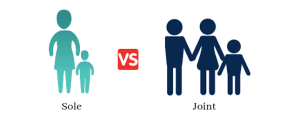Many of our clients have initial questions about how the major decisions for the minor children will be made after the divorce is completed. While joint decision making is conceptually ideal, in many cases requiring the parties to make major decisions together can create disagreements, leading to further litigation. In some cases, a major decision like religion is not at issue but matters like the children’s extracurriculars and medical/dental or therapy treatments often create discord among parents. How does the Court assess whether to award a parent joint or sole decision making for the children?

The court determines whether to grant sole or joint decision-making responsibility (previously referred to as custody) for minor children based on the best interests of the child, as outlined in the Illinois Marriage and Dissolution of Marriage Act (750 ILCS 5/602.5). The court evaluates several specific criteria to decide whether one parent should have sole decision-making authority or if both parents should share joint decision-making responsibility. Below are the key factors and considerations:
The court often considers the following factors to determine what arrangement serves the child’s best interests:
 Illinois Divorce Lawyer Blog
Illinois Divorce Lawyer Blog




